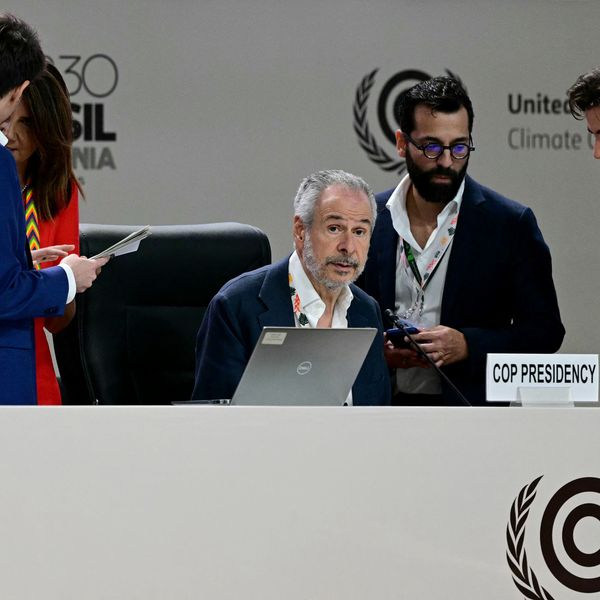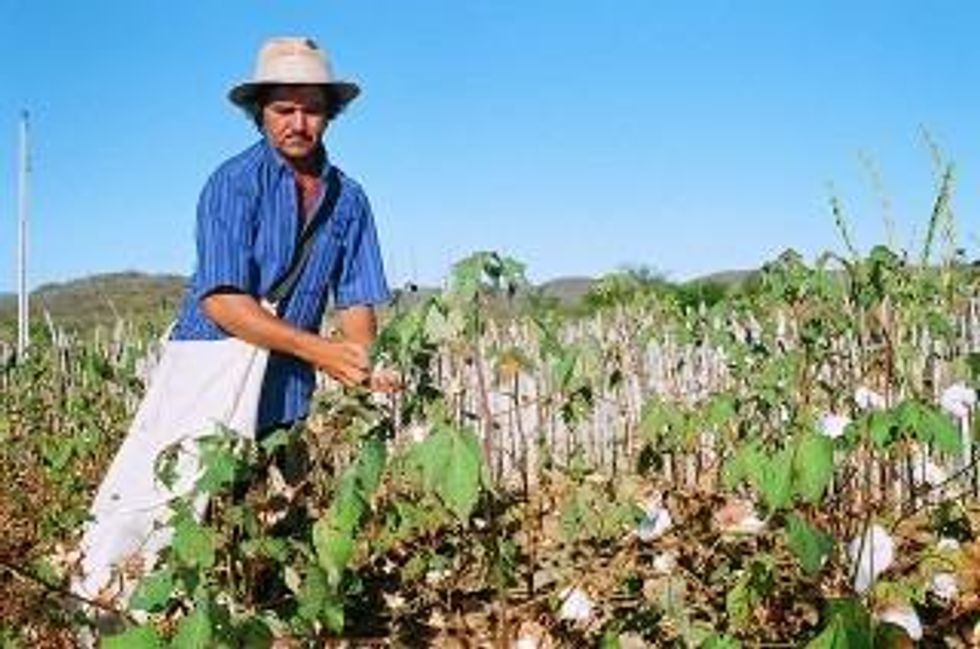Climate change will have significant impacts on world food security in our lifetimes. Indeed, we have already begun to feel the impacts from extreme events--droughts, heat waves, torrential rains leading to floods, with consequent impacts on crop production in Russia, Texas and the U.S. Midwest, Pakistan, Thailand, to name a few recent high-profile locations. Scientists predict that in the changing climate, extreme events such as these will increase in frequency and magnitude.
More insidious and potentially more threatening are slow onset events that over time will incrementally diminish or eliminate crop production in some parts of the world. These slow onset events--temperature rise, salt-water intrusion, loss of soil moisture and water supplies, loss of productive coastal areas due to sea level rise--will reduce crop yields and eliminate agriculture as a livelihood strategy for many.
So the decision by the newly reformed Committee on World Food Security to request its High-level Panel of Experts (HLPE) to conduct a study on climate change and food security was welcomed enthusiastically, especially by many of the civil society organizations working on food and climate change. At the end of 2011, the HLPE established a project team of experts from around the world to write the report. The mandate given to the team was to "review existing assessments and initiatives on the effects of climate change on the most affected and vulnerable regions and populations and the interface between climate change and agricultural productivity, including the challenges and opportunities of adaptation and mitigation policies and actions for food security and nutrition."
At the end of March 2012, the program team released the zero draft of the report for public consultation and comment. IATP found the report to be missing key elements of the climate change and agriculture story. We highlight three points from those comments below:
- First, the report shows a remarkable lack of urgency. Climate change is affecting agriculture now. Moreover, the effects we are seeing are the result of a less than a 1deg C temperature rise over historical averages over the last hundred years. Scientists predict that the average temperature increase could double--to 2deg C over historical levels--in the next several decades. The extreme weather and slow onset impacts will then begin to be felt much more rapidly and with greater frequency than in past decades. Adaptation to a changing climate takes time. Given the impacts we expect, farmers need to start to adapt immediately to the impending changes.
- Second, one of the most important sets of practices for this short-term adaptation challenge comes from the science and practice of agroecology. Because agroecological methods emphasize crop diversity in time and space, the systems are also more resistant to extreme heat. Experts consider the low-cost adaptations of agroecology to provide "no-regrets" options--that is, farmers benefit from the change in practices whether or not there is a severe drought on the horizon. Unfortunately the zero draft of the HLPE report made only passing references to agroecology, ignoring the documented research into its effectiveness in preference for vague and platitudinous remarks such as, "techniques drawn from conventional, agro-ecological, organic and high-technology food production will all need to be evaluated for their location-specific appropriateness."
- Third, the report placed more emphasis on the benefits of these agroecological practices for mitigation, as increasing the health of the soil through addition of composts and manures tends to increase the soil carbon concentration, than on their potential for allowing small-scale agriculture to adapt to climate change. Developed countries are keen to direct attention away from their own significant emissions from the agriculture sector towards the potential for small farmers in the developing world to help reduce carbon dioxide concentrations in the atmosphere by sequestering carbon in their fields. In our analysis, the report needs much more emphasis in two areas: the potential of agroecology for adaptation; and the responsibility for developed country agriculture to reduce its own excessive emissions.
Our unease with the content and framing of the zero draft was in fact shared by many civil society organizations around the world. In our conversations with partners around the globe, we decided we needed to send both our comment to the HLPE and a letter directly to the HLPE laying out our broader concerns. Fifty-two organizations, like the African Biodiversity Network, Asian Farmers Association, and Oxfam, joined IATP in sending this letter to the High-level Panel. The letter was not focused on the specifics of the report's recommendations, but rather spoke to the vital role the HLPE can play in what is a highly politicized and--to date--alarmingly ineffectual multilateral debate.
The final paragraph of the letter sums up why we care not just about the content of the report, but also about the unique role that the High-level Panel must assume in the global governance of food security:
The HLPE is a unique entity. Its credibility matters to the CSOs who helped ensure its creation and who strongly support its role. That role is to bring evidence-based knowledge and research to the intergovernmental debate at the CFS. The HLPE needs to focus on its strengths: it brings together a broad range of stakeholders, it explicitly acknowledges alternative forms of knowledge, and its mandate is to provide evidence-based analysis and intellectually honest recommendations to multilateral policy debates. It is no small task, but it is an exciting one. The report on climate change and food security falls short. We very much hope a second draft of this critically important report can take up the challenge.



